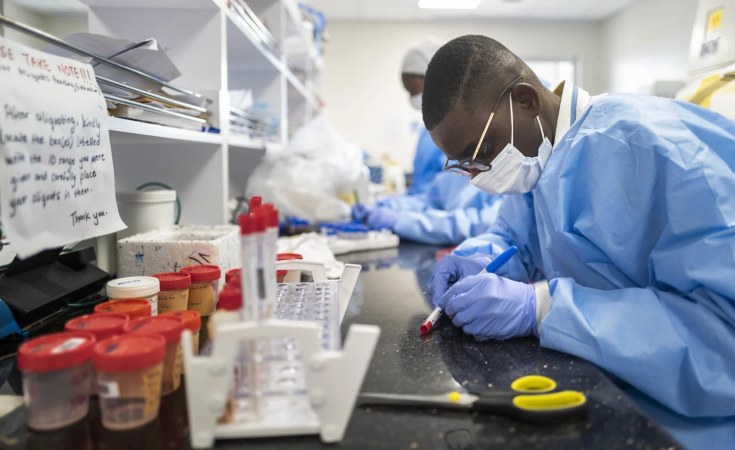It is said that at least 700,000 people die each year due to drug-resistant diseases.
Health experts on Tuesday said Antimicrobial Resistance (AMR) has become one of the biggest threats to global health and that if left unchecked, minor infections could become life-threatening and almost impossible to treat.
The experts spoke during a virtual media roundtable organised by an American pharmaceutical giant- Pfizer, to raise awareness about AMR and ensure ongoing patient safety efforts "so as to maintain the future effectiveness of antibiotics."
Microbiologist speaks
Speaking at the roundtable, a Professor of Clinical Microbiology at the College of Medicine of the University of Lagos (CMUL), Idi-Araba, Oyinlola Oduyebo, said AMR increases morbidity and mortality rates and that it is associated with high economic costs due to its healthcare burden.
She said antibiotics are very useful in treating infections, however, they are fast losing their usefulness because they are becoming resistant to infections.
"When a patient takes antibiotics appropriately, the bacteria dies and gets eradicated from the body. But when taken inappropriately like overdose, too short or too long duration, taken when there is no infection or for the wrong infection, the bacteria do not die instantly but they adapt," she said.
"They are able to reproduce because they can resist the infection with their various resistance genes."
AMR
AMR occurs when bacteria, viruses, fungi, and parasites change over time and no longer respond to medicines making infections harder to treat and increasing the risk of disease spread, severe illness, and death. Antimicrobials - including antibiotics, antivirals, antifungals, and antiparasitics - are medicines used to prevent and treat infections in humans, animals, and plants.
The Medical Director, West Africa Pfizer, Kodjo Soroh, said at least 700,000 people die each year due to drug-resistant diseases.
Mr Soroh said: "More common diseases, including respiratory tract infections, sexually transmitted infections, and urinary tract infections, are untreatable; lifesaving medical procedures are becoming much riskier, and our food systems are increasingly precarious.
"Without action by governments, industry, and society, AMR is expected to cause 10 million deaths each year by 2050 as overuse of antibiotics is creating stronger germs."
He lamented that some bacteria are already "resistant" to common antibiotics and that it is often harder and more expensive to treat the infection when it happens.
He said losing the ability to treat serious bacterial infections is a major threat to public health.
Mr Soroh said governments and the public health community must work together with industry to take further action and support measures that will enable continued innovation in the development of new antibiotics and vaccines to help curb the spread of AMR.
Anti-Microbial stewardship
Ms Oduyebo said it is important to adopt the Antimicrobial Stewardship (AMS) programme as a means to fight resistance and protect global health.
She said: "AMS is a system-wide healthcare strategy, designed to promote, improve, monitor, and evaluate the rational use of antimicrobials to preserve their future effectiveness, along with the promotion and protection of public health."
She noted that AMS has been very successful in promoting antimicrobials' appropriate use by implementing evidence-based interventions.
"The "One Health" approach, a holistic and multisectoral approach, is also needed to address AMR's rising threat. AMS practices, principles, and interventions are critical steps towards containing and mitigating AMR," she said.
Meanwhile, in his remarks, Kennedy Wariso, Head of Department, Medical Microbiology and Parasitology, University of Port Harcourt, said the programme optimises the use of antimicrobials, improve patient outcomes, reduce AMR and health-care-associated infections, and saves health-care costs amongst others."
Mr Wariso said, with rates of AMR increasing worldwide, and very few new antibiotics being developed, existing antibiotics are becoming a limited resource.
"It is therefore essential that antibiotics only be prescribed - and that last-resort antibiotics be reserved - for patients who truly need them. Hence, AMS and its defined set of actions for optimising antibiotic use are of paramount importance," he said.


